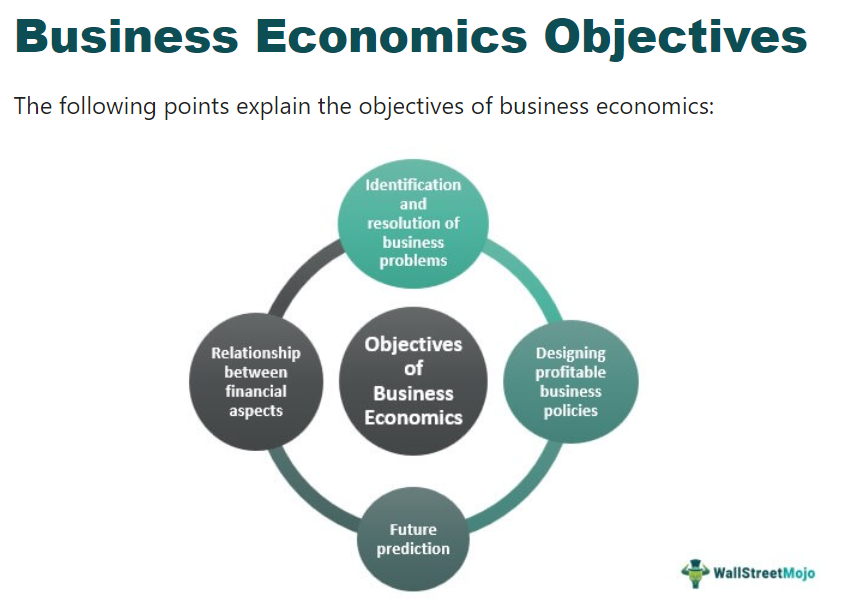Key Challenges Facing Business and Economics in the Post-COVID Era
Key Challenges Facing Business and Economics in the Post-COVID Era
Blog Article
Recognizing Financial Concepts for Better Service Decision-Making
In the complicated landscape of contemporary company, a comprehensive understanding of economic concepts can dramatically improve decision-making processes. By examining aspects such as market frameworks and consumer actions, companies can tailor their strategies to straighten with affordable dynamics and consumer demands. In addition, understandings into need elasticity and opportunity prices offer a framework for enhancing resource allowance. Nevertheless, the application of these economic concepts frequently discloses unforeseen challenges and chances that can redefine strategic strategies. What effects do these insights hold for the future of service strategy?
The Fundamentals of Economic Concept
Financial theory works as the structure for recognizing just how individuals and organizations make selections in the presence of scarcity. At its core, economic concept checks out the allocation of restricted resources to please endless desires. This essential principle of scarcity necessitates trade-offs, compelling decision-makers to examine the advantages and prices linked with various alternatives.
Both primary branches of financial concept are macroeconomics and microeconomics. Microeconomics concentrates on individual agents, such as consumers and firms, examining their actions and interactions in particular markets. It emphasizes concepts like supply and need, rate flexibility, and market stability, which are crucial for understanding how rates are established and just how sources are dispersed.
On the other hand, macroeconomics analyzes the economic climate all at once, dealing with broader issues such as rising cost of living, joblessness, and economic growth. It provides understandings right into systemic phenomena that affect all financial representatives, directing policymakers in crafting effective financial methods.
Eventually, a solid grounding in financial theory is important for effective organization decision-making. By comprehending the principles of deficiency, compromises, and market dynamics, companies can better navigate intricate atmospheres and make educated options that enhance their affordable advantage.
Trick Economic Indicators
Secret economic indications function as crucial devices for assessing the wellness and direction of an economic situation, supplying important understandings for company decision-making. These indications are quantitative actions that show the financial efficiency and can be categorized right into leading, lagging, and coincident signs.
Leading signs, such as customer self-confidence indexes and securities market patterns, forecast future economic task, permitting companies to prepare for modifications in the marketplace. Lagging signs, like joblessness rates and business earnings, offer understandings right into the economy's previous performance, assisting organizations to assess long-lasting fads. Coincident indicators, such as GDP growth and retail sales, change simultaneously with the economy, using a real-time photo of financial conditions.
Recognizing these indications makes it possible for services to make educated decisions regarding financial investments, resource appropriation, and critical preparation. By carefully keeping track of these key financial signs, companies can navigate unpredictabilities and position themselves successfully in the ever-changing address economic landscape, ultimately boosting their decision-making procedures and long-term success.

Market Structures and Characteristics
Comprehending market frameworks and dynamics is important for organizations aiming to prosper in competitive atmospheres. Market frameworks, broadly categorized right into perfect competition, monopolistic competition, oligopoly, and visit this page monopoly, substantially affect pricing methods, item differentiation, and competitive habits. Each framework presents distinct difficulties and possibilities that can determine a firm's calculated instructions.
Oligopolies, identified by a few dominant gamers, lead to synergistic decision-making; companies must very carefully take into consideration competitors' responses to their activities. Syndicates exist when a single firm regulates the market, resulting in optimal prices power but often bring in governing examination.
Understanding these characteristics allows companies to anticipate market fads, adapt strategies, and maximize source allotment. In addition, identifying just how outside aspects like technology and regulation impact these structures can enhance critical planning. By understanding market structures and characteristics, firms can make informed choices, eventually improving their competitive position and driving lasting development.
Consumer Actions Insights
Consumer actions plays an essential role fit business methods and results. Comprehending how consumers make acquiring choices, their choices, and the elements affecting their behavior can substantially enhance a business's capacity to meet market needs. Secret insights right into customer behavior can be stemmed from analyzing demographics, psychographics, and behavioral patterns.
Group factors such as age, earnings, sex, and education and learning his explanation level supply a fundamental understanding of target markets. Psychographics delve deeper, checking out consumers' attitudes, values, and way of lives, which can influence brand name commitment and item assumption. Behavior understandings, such as purchasing frequency and response to promotions, are indispensable for tailoring marketing efforts.
Additionally, external factors like economic conditions, social fads, and technical developments additionally influence customer options. Throughout financial recessions, consumers might prioritize necessary products over high-end items, modifying need patterns.
Applying Economics to Strategy
Insights obtained from customer habits contribute in creating efficient company strategies. By leveraging economic principles, businesses can much better recognize market characteristics, maximize source allowance, and enhance affordable placing. Evaluating need elasticity, for example, enables companies to adjust rates techniques to make best use of profits while remaining eye-catching to consumers.
In addition, recognizing market segmentation permits companies to customize their offerings, ensuring they fulfill the particular demands and preferences of varied consumer groups. Business and Economics. This targeted technique improves customer contentment and promotes brand name loyalty

Integrating game theory right into critical preparation likewise offers insights right into affordable habits, enabling firms to anticipate competing activities and develop counter-strategies efficiently.

Verdict
In conclusion, a comprehensive understanding of economic principles considerably improves company decision-making. By taking a look at market frameworks, examining customer habits, and examining crucial financial signs, companies can establish efficient techniques that align with market demands.
In the complex landscape of modern business, an extensive understanding of economic principles can significantly enhance decision-making procedures.Leading indications, such as customer confidence indexes and stock market trends, predict future financial task, enabling companies to anticipate adjustments in the market. By very closely checking these crucial economic indicators, organizations can navigate uncertainties and place themselves successfully in the ever-changing economic landscape, inevitably improving their decision-making processes and lasting success.
By leveraging economic principles, organizations can better understand market characteristics, optimize source appropriation, and improve competitive placing.In final thought, a comprehensive understanding of financial principles dramatically improves service decision-making.
Report this page